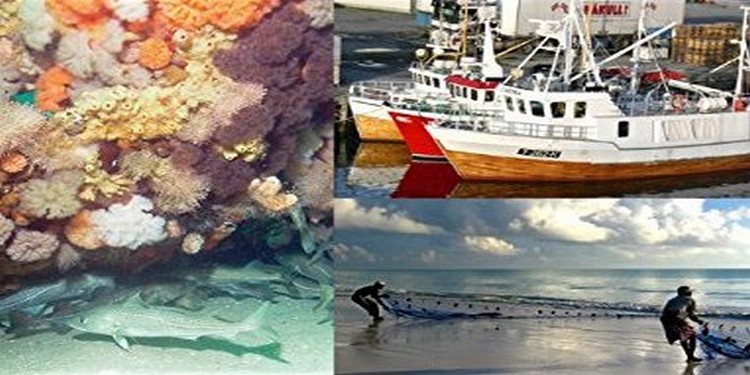Fisheries Governance & Biodiversity Conservation
– Press Release –
IUCN’s fisheries expert called the European Parliament and European Commission to give more attention to the need for joint governance of fisheries and biodiversity conservation and to reinforce support to the social aspects of fisheries as the sector has now to face strong pressure groups with different interests.
Serge Garcia, Chair of the IUCN-CEM-FEG (Fisheries Expert Group of the Commission on Ecosystem Management of IUCN) was invited to the European Parliament to present a recently published 500-page book co-written by close to 60 experts of the biodiversity conservation and fisheries management worlds: “Governance of Marine Fisheries and Biodiversity Conservation: Interaction and Co-evolution.” (Wiley-Blackwell publishers, 2014[1])
The book analyses the two streams of governance respectively responsible for marine fisheries and biodiversity conservation. The two streams have diverged from the mid-19th century to WWII under the impact of massive industrial development on the environment. Since then, the two streams have become progressively closer despite conflicts, showing convergence -when similar changes have occurred in independent response to external forces on both streams- and co-evolution -when similar changes emerged from inter-dependent responses of the two streams to their respective actions.
At the present stage, many important conflicts have been resolved, although core differences remain between long-term goals as well as risk perception and allocation. In the future the relation between the two streams can be further improved with the help of “good governance”, as well as market incentives, but these will not be sufficient unless broader social goals such as poverty alleviation, food security and equity are explicitly added to the “sustainability” equation.
In closing, the presentation also addressed briefly the governance of environmental NGOs and their interaction with fisheries and the growing competition from rapidly developing economic sectors to be faced by fisheries in the next two decades.
The panel discussion dwelled on the relevance of the global conclusions of the book in the European context, where the Common Fisheries Policy deals with fisheries governance, while conservation of ecosystem and biodiversity is regulated by other environmental institutions.
The panellists representing DG MARE, the European Parliament and two Fisheries Advisory Councils (NWWAC and LDAC) touched upon the problem of implementation of existing regulation at Member State level; the need to directly involve fishermen in the negotiations; the need to have complete and reliable data before taking decisions; the necessity of setting clear objectives and achieving them; the concerns deriving from conflicting existing European policies in different domains (environmental vs. development); and the need to take measures that are proportionate to the problem.
The event took place on 23 June 2015 at the initiative of Alain Cadec MEP, Chair of the “Fisheries, Aquaculture and Integrated Maritime Policy” working group of the Intergroup, and was chaired by Werner Kuhn MEP.
***
[1] The book can be acquired here
***



